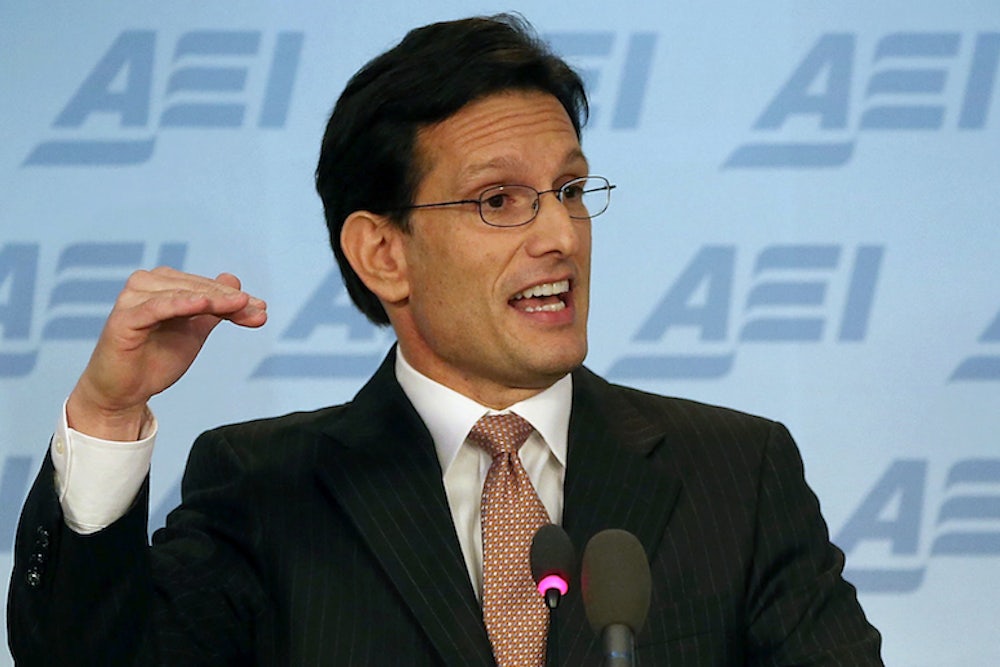The Tea Party wave that built around the country in 2009 and 2010 was fueled by many things—resentment over foolhardy homeowners getting mortgage relief, backlash against the Affordable Care Act, and anxiety over federal spending. But if its rhetoric was to be believed, the movement was also driven by a healthy dose of old-fashioned anti-Wall Street populism—anger over the TARP bailouts, the AIG bonuses, the Obama administration’s failure to prosecute any of the bankers who’d brought us close to ruin.
Something funny happened, though, as the pitchforks made their way to confront the money changers at the temple: Wall Street and big business co-opted them. It turned out that some elements of the Tea Party movement were much more opposed to Obama than they were to self-dealing CEOs and bankers, and perfectly willing to join with the latter to fight the former. This quickly produced the confounding spectacle of a purportedly populist uprising that was working hand in hand, and in many cases funded by, the business elite. And the nexus for this alliance was the Republican leadership in Congress. When Republicans were trying to block the Dodd-Frank financial reform bill, they took Frank Luntz’s devious advice to label the bill a “bailout” for the banks—deploying Tea Party rhetoric to attack a bill that was in fact bitterly opposed by the bailed-out banks. In recognition of this effort, Wall Street in 2010 swung its campaign spending sharply toward GOP candidates, including many running under the Tea Party banner.
And when the Tea Party wave reached Washington, after the Republican rout in the midterm elections, who put himself forward as the new arrivals’ standard bearer within the House leadership? None other than Eric Cantor—the top recipient of financial industry money in Congress, the longtime protector of one of the most notorious Wall Street favors of all, the tax loophole for the carried-interest income of private-equity and hedge-fund managers. It was an incongruous spectacle, but so muddled had the right’s populism become by that point that the opportunistic Cantor was able to brazen his way through it. It was he who goaded the insurgent congressmen to make the raising of the debt-ceiling limit in June of 2011 their big stand against Obama: “I’m asking you to look at a potential increase in the debt limit as a leverage moment when the White House and President Obama will have to deal with us,” Cantor told the rank-and-file in a closed-door meeting in Baltimore in January 2011. It was he who undermined Speaker John Boehner’s effort to reach a grand bargain with Obama to pull the nation back from the brink, by riling up rank-and-file conservatives against the deal. It was a brilliant display: in one fell swoop, Cantor was able to protect the financiers’ carried-interest loophole (which Obama sought to close as part of the deal) at the same very time as he was serving as the champion of the Tea Party insurgents.
Now, Cantor’s game is up. Many, such as my colleague John Judis and the New Yorker’s Ryan Lizza, have already noted the right-wing populism in the rhetoric of Dave Brat, the economics professor who upset Cantor in Tuesday’s primary. But what is particularly significant about Brat’s victory is that he deployed this populism against the very man who had perfected the art of faking it. “All the investment banks in New York and D.C.—those guys should have gone to jail,” Brat said at one Tea Party rally last month. “Instead of going to jail, they went on Eric’s Rolodex, and they are sending him big checks.” Liberals have for some time now been decrying Cantor’s hypocrisy in posing as the tribune of the common man, but here was a fellow Republican calling it out (without, it should be noted, the assistance of any of the self-appointed Tea Party organizations that have been so willing to make common cause with their anti-Obama allies on Wall Street). Yes, some conservatives have for the past few years been making noise about “crony capitalism,” but somehow their examples of this scourge most often tended to be Democratic-inflected rackets, such as the failed solar energy company Solyndra, rather than Republican-tinted ones such as, say, the private lenders who were making a killing acting as taxpayer-subsidized middle-men in the student loan market.
This is why we should be grateful for Dave Brat, beyond the schadenfreude of seeing a widely disliked congressional leader brought low. Yes, Brat’s win will add new kindling to the Tea Party cause just as some were declaring it burned out, thus further reducing the odds of legislative progress in areas such as immigration reform. But his win has, at least momentarily, also brought some clarity and integrity to the insurgency. Here was anti-Wall Street populism in its pure form: aimed, for once, at the right target.
